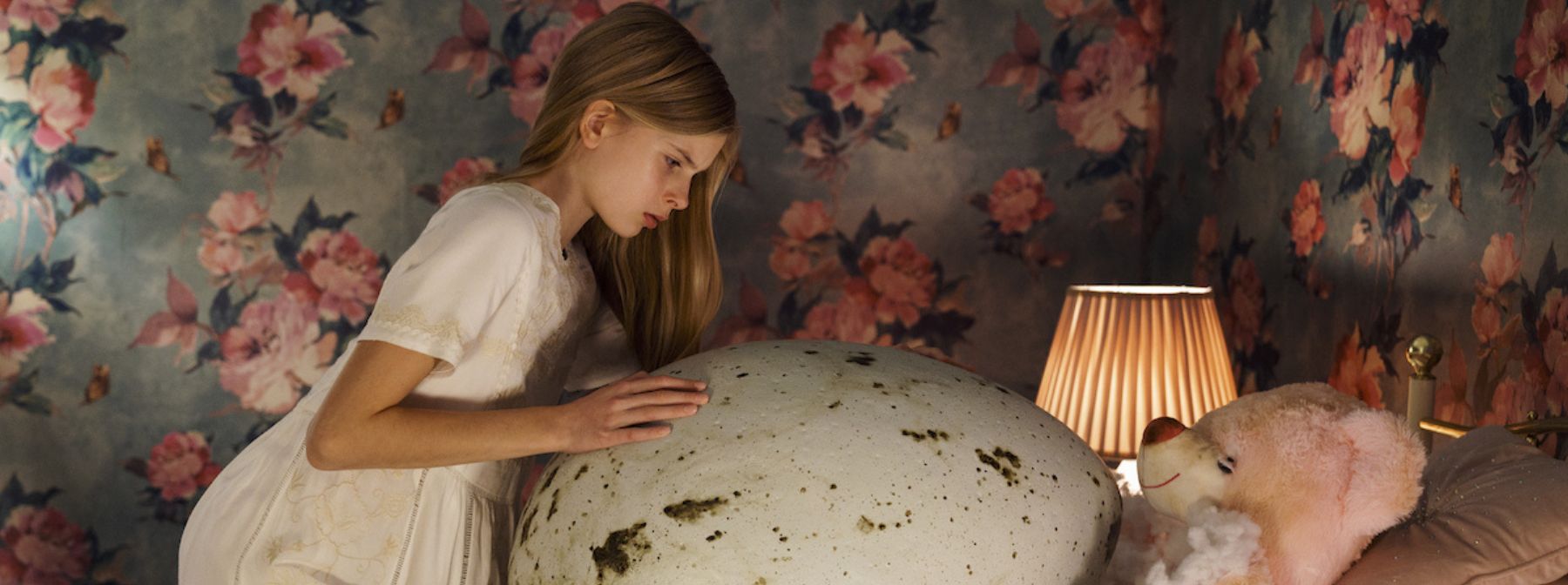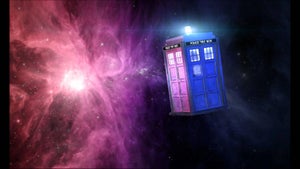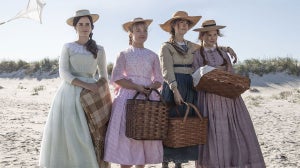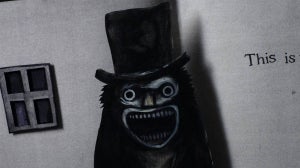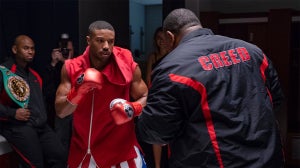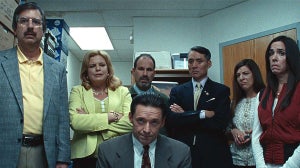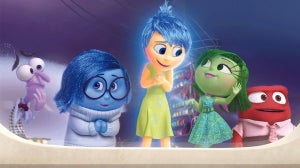
Puberty is a nightmare for everybody, but especially for Tinja, the young protagonist of director Hanna Bergholm’s debut feature Hatching.
A gymnast repeatedly pushed beyond her limits by her domineering mother, Tinja’s life becomes more hellish the day she discovers a giant egg.
Once hatched it reveals a monstrous bird creature, whose emotions begin to mimic Tinja’s own – which at this turbulent stage in her life, means subsequent chaos.
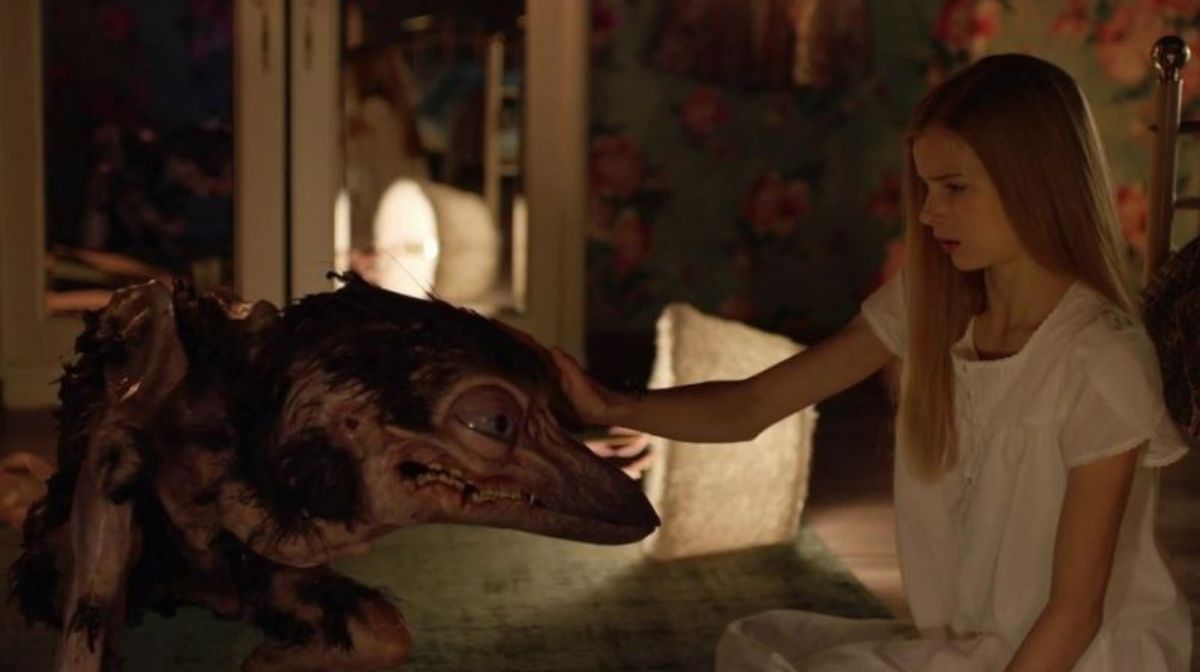
Speaking to Zavvi, Bergholm explained why this horrifying creation was the perfect allegory for the metamorphosis of puberty: “Birds are fragile and there’s something terrifying about them.
"The film came from a one sentence pitch by our screenwriter, Ilja Rautsi, who had an idea about a boy who hatches a doppelganger out of an egg.
"It all came together when I made one change - turning the lead character into a girl. From there, I drew an egg and started to think about what could come out of it. Then the themes of motherhood, growing up, and more came up.”
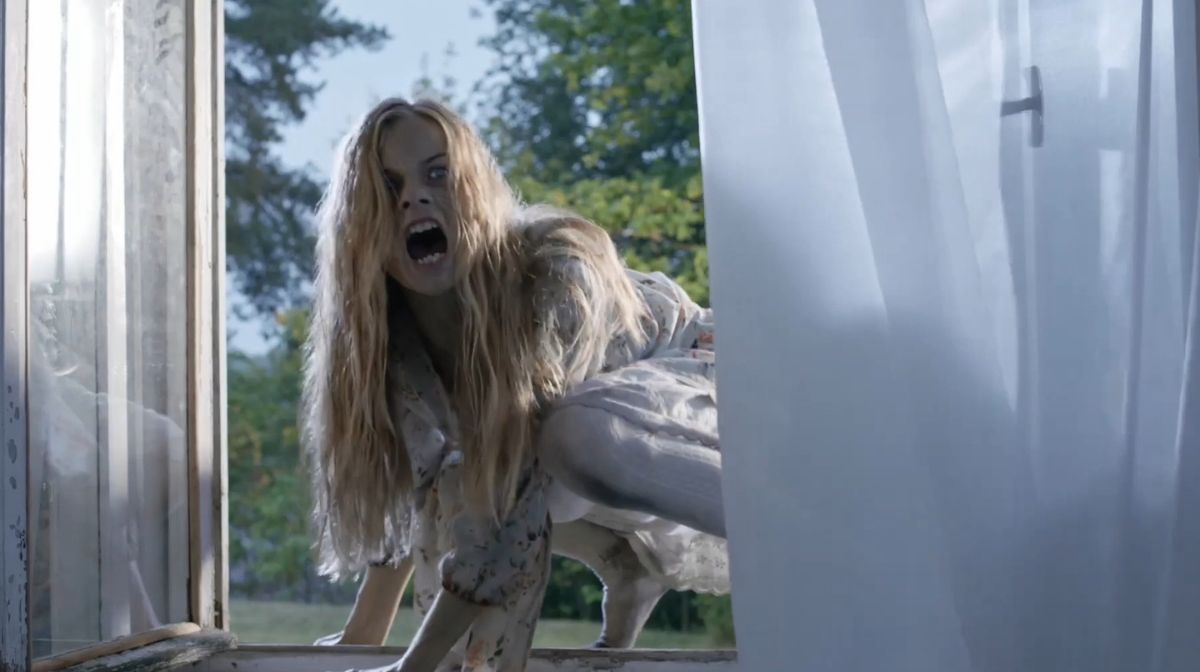
As hinted here, for Tinja they needed to find a young actor who could play both the gymnast and her doppelganger pet bird Alli transforms into. This proved to be a challenge for the filmmaker, who began auditions in 2018, meeting 1,200 actors before Siiri Solalinna entered the room:
“She had just turned 12 and had never acted before. She was such a natural talent, who could throw herself into any kind of emotion.
"This is a very demanding role and also a scary story, so we had long rehearsals so she’d feel safe and not embarrassed about becoming a screaming monster in front of all these people. We’d all be crawling on the floor, playing the monster, including me! She needed to see that we were all okay making fools of ourselves.
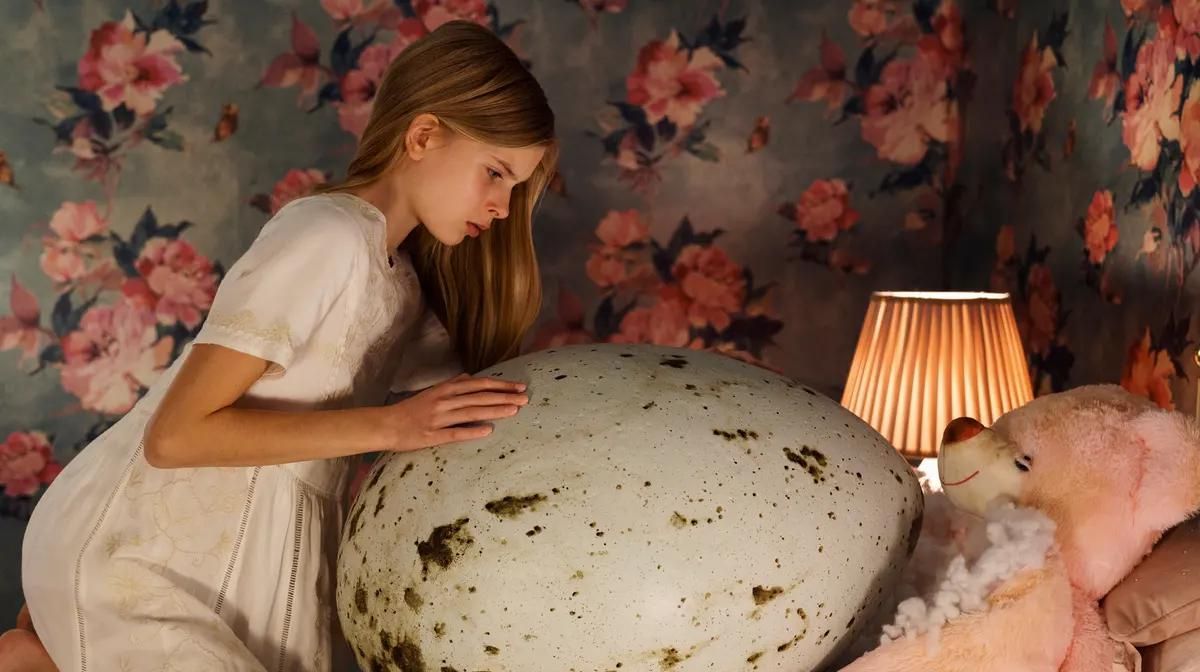
"After we finished shooting, she said she loved portraying the monster more because the teen girl was like her, not always open with her emotions. But when she became Alli, she could really come alive on-screen.”
Before that metamorphosis happens, Alli is a delightfully grotesque creation brought to life by animatronic designer Gustav Hoegen, best known for his work on Prometheus and Doctor Who (Bergholm admits she found him by Googling “best animatronic designer in the world”). Starting off as a puppet, different performers take reign of the character as it becomes increasingly human, with the design for the evolving creation locked-in early on.
“I wanted this creature to be sympathetic, but totally disgusting. It was designed to be the opposite of what the mother wants her daughter to be – totally deformed, as far from the perfect gymnast as you can get. The creature also needed to have a physical presence, I never wanted this to be a digital character.”
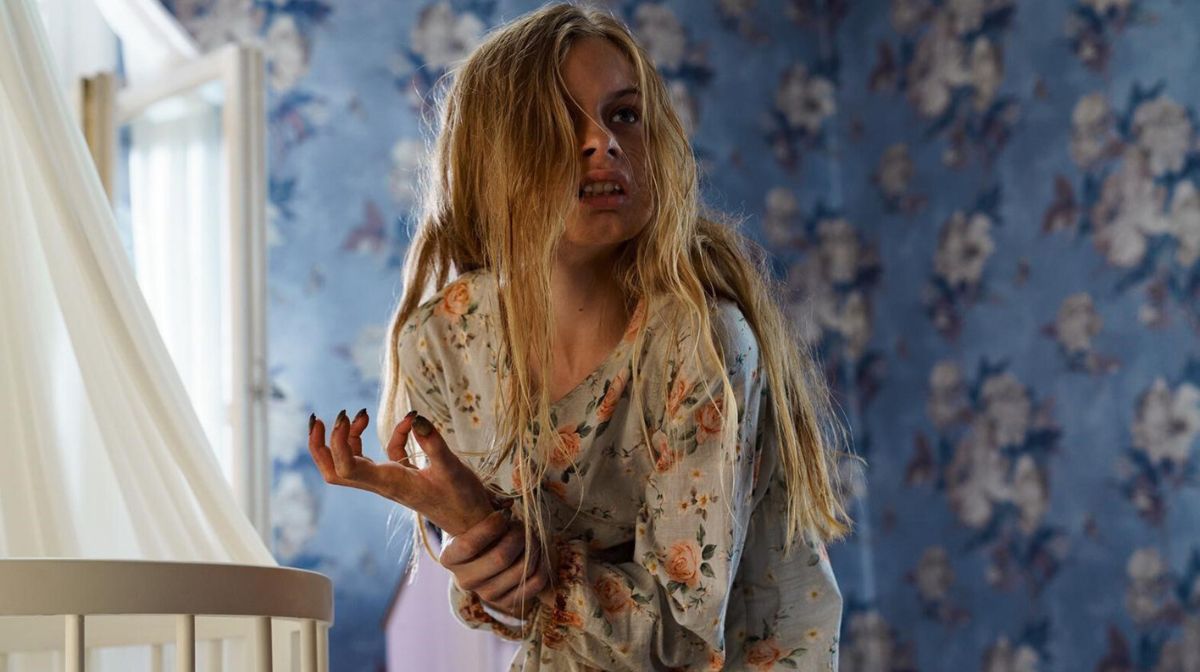
Hatching isn’t just about the monster though, with the film also examining a troubled mother/daughter relationship. Here the mother is a social media obsessive who spends all day filming and curating the lives of her family to create a perfect portrait. It’s a darkly comic role and arguably the hardest to pull off: she manipulates everyone in her life but largely does so through vanity and a desire to be liked.
“That character was difficult to write, but also a lot of fun. In the very first script she wasn’t an influencer and instead was more old-fashioned, trying to keep up appearances. But when I started to think about what the modern version of that might be, she became what she is now.
"You might say she’s the main villain, but I see her as a sad character, desperately searching for happiness, trying to get love from her anonymous viewers while ignoring her daughter who is trying to get that love from her.”
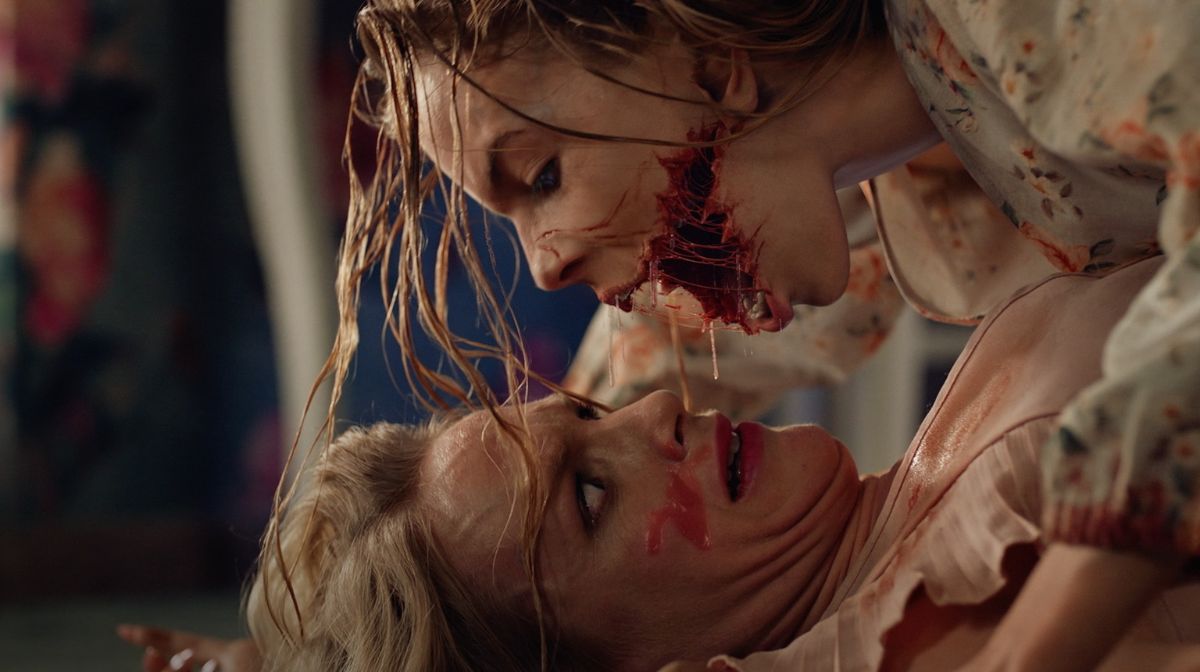
Several films this year have explored troubled mother/daughter relationships in unusual ways, ranging from Turning Red to Everything Everywhere All At Once. Hatching puts this under the spotlight again, with Bergholm believing the reason for the current trend is because cinema in general is finally shifting its narrative focus away from male relationships.
“When I started to think about the story, I felt I’d been missing female narratives in films. When there are female characters, I don’t identify with them, I don’t feel that they have relatable emotions, wants, and needs.
"I wasn’t seeing stories about female experiences. And of course, one big subject is mother/child relationships, because that is one of the first you have: your entire life is built around this.
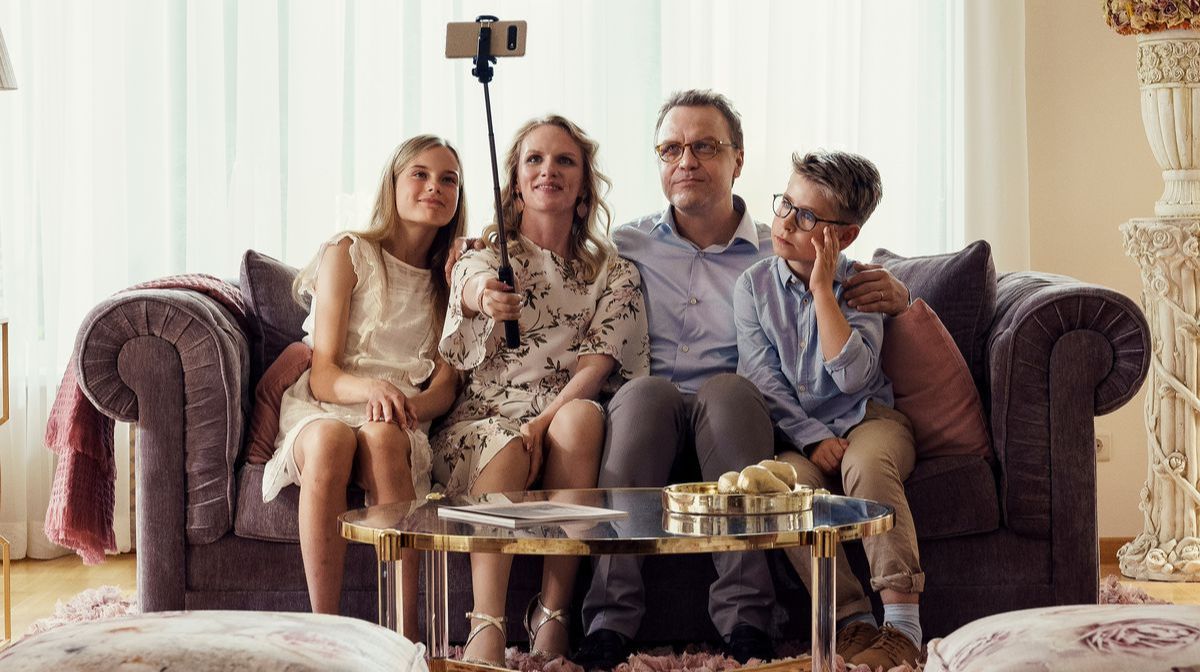
“I don’t see the film as personal in that respect, but I do see parts of myself in both characters. I have the same need to keep things under control with my work as the mother does with her social media posts. And while I haven’t experienced it so much in my personal life, I identify with Tinja’s feeling that she’s not accepted the way she is. As a woman in society, you’re often made to feel that you’re never quite enough, you’re always pushed to do more either at work or at home.”
Prior to making her feature debut, Bergholm was best known in her home country for writing and directing children’s TV series Reetta Ja Ronja, while several of her earlier shorts are grounded tales of youthful outsiders. As a storyteller, why is she interested in making films about the childhood experience?
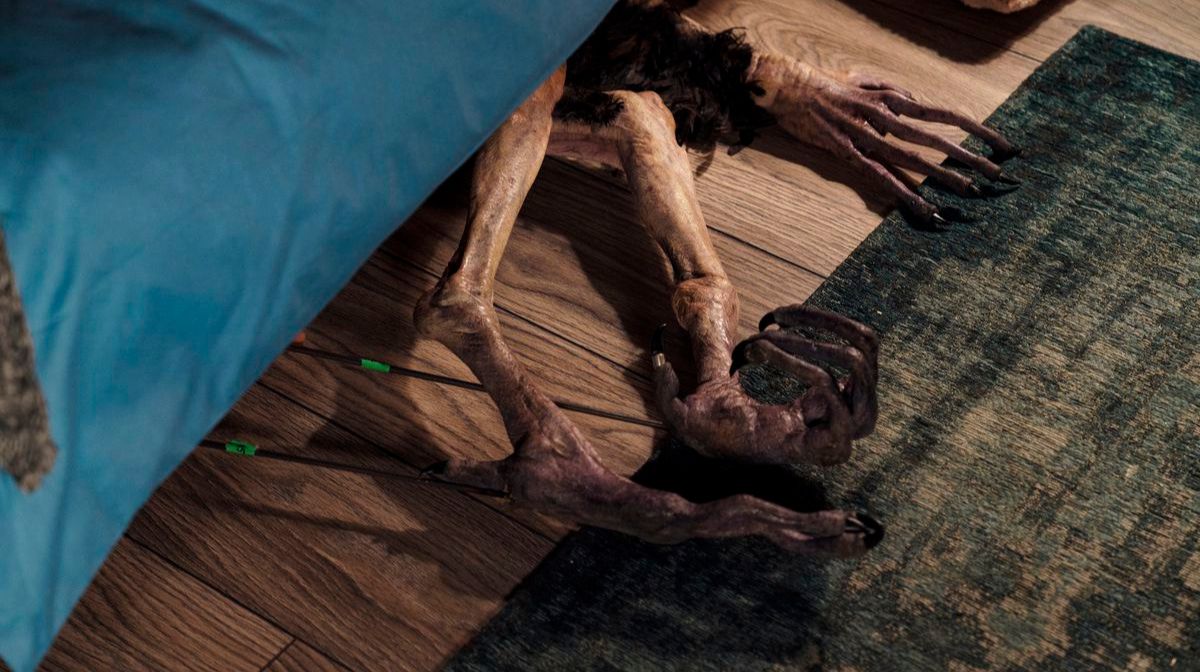
“When you are a child, you experience things for the first time in your life, which is fascinating - you get to see new points of view in the everyday that you take for granted. There weren’t actually many differences between me directing that children’s drama and this film – actually making that show helped prepare me to work with young actors, get great performances, and make sure that most importantly, they have a good time!”
Bergholm’s next film will be a thriller analysing the mother/ daughter relationship from the parental perspective, described by the filmmaker as a fantasy drama dealing with post-natal depression. After seeing her inventive, disgusting, and surprisingly moving debut, it’s safe to say we’ll be first in line to see that next project.
This feature originally appeared in the September 2022 edition of The Lowdown.
Hatching is released in UK cinemas on 16th September.
For all things pop culture, follow us on Facebook, Instagram, Twitter, and TikTok.

